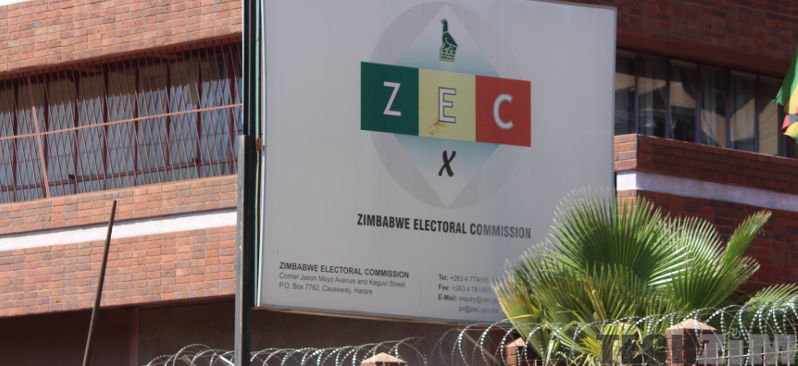THE Zimbabwe Electoral Commission (Zec) - which faces a litmus test of credibility after damaging its reputation through a compromised performance during the 2008 and 2013 elections - has become the new battleground for the general elections set for July 30.
The main issues of concern for opposition parties and civil society around Zec include the following: Biometric Voter Registration (BVR, which captures unique physical features of voters - fingerprinting being the most commonly used); voters' roll; printing of ballots; the number of excess ballots to be printed; the number of polling stations and sub-polling stations; and public media coverage of political parties.
In a bid to push for credible polls, Crisis in Zimbabwe Coalition (CiZC) has intensified regional advocacy campaigns by engaging the Southern African Development Community (Sadc) organ on politics, defence and security to urgently look into the Zimbabwean situation ahead of the elections.
A CiZC delegation held on May 30, 2018, a meeting with the Sadc organ on politics, defence and security at the regional bloc's headquarters in Gaborone, Botswana, to explain the current political and security situation in Zimbabwe and its possible implications on the credibility of the polls.
The delegation also submitted a letter to the Sadc organ on politics, defence and security director, Retired Lieutenant-Colonel Tanki Mothae, outlining civil society demands ahead of the polls.
In the letter, also copied to the Sadc executive secretary Stergomena Lawrence Tax, CiZC said Sadc should ensure the Zimbabwe elections are under conditions which meet the Sadc Principles and Guidelines Governing Democratic Elections.
The letter explicitly says the current government in Zimbabwe, led by President Emmerson Mnangagwa, lacks legitimacy as it came in through a military coup last November.
"While Zimbabwe is set to hold elections during the second half of 2018, we raise key concerns around inadequacies on the part of the Zimbabwe Electoral Commission to administer a credible electoral process. The involvement of the military and traditional leaders in elections remains unaddressed," it says.
"Based on pronouncements by the current government, there are valid fears that the 2018 elections will be highly militarised and traditional leaders are continuing on a partisan path to influence electoral outcomes in violation of Section 208 of the Constitution of Zimbabwe which bars the former from engaging in partisan politics."
Election Resource Centre (ERC) director Tawanda Chimhini said yesterday at the launch of the non-governmental body's elections reform barometer report although there has been an improvement in political, tolerance, elections administration and the electoral process in general, Zec should improve transparency and accountability ahead of elections.
"There are calls on Zec to improve on transparency and accountability," he said.
"It should review some of the administrative issues. One does not need to change laws to implement certain reforms. In that vein, the bulk of the issues of reforms being called for by the likes of the MDC Alliance are within Zec's purview to address."
CiZC raised concern that although various election observer missions, including the Sadc Election Observer Mission to Zimbabwe for the 2013 general elections, highlighted serious problems in the electoral processes, most of them remain unaddressed. In its latest research titled Biometric Voter Registration Observation Report, the Zimbabwe Election Support Network (ZESN), a non-governmental organisation, said while Zec managed to register over five million voters through BVR under difficult conditions, it has serious shortcomings.
"The report commends Zec for administering the BVR process in admirable fashion, under stringent conditions including limited time for full and proper training and acclimatisation of its agents with this new voter registration system. ZESN found Zec to be responsive, in the main, to emergent issues during the BVR process, including through constant ad hoc and programmed engagements with stakeholders.
"Zec's successful implementation of the BVR process is perhaps best represented by the fact that by the end of the BVR mop-up exercise on the 10th of February, Zec had registered approximately, 5 325 631 people. This figure, represented approximately 73,5% of eligible voters, surpassing Zec's target of 70%.
"The successes notwithstanding, ZESN observed some challenges in the processes, regarding inclusivity, preparedness, fair distribution of registration centers and resources, and access to full analysable information, amongst other elements."
The opposition MDC Alliance staged a massive demonstration on Tuesday to pressure Zec to address these issues which would have a major bearing on the elections outcome. The ruling Zanu PF's reaction protest to this flopped. The opposition has threatened to roll out more countrywide protests to pressure Zec to hold free, fair, transparent and credible elections.
- the independent
 Concern over Masvingo black market
Concern over Masvingo black market  Kenya declares three days of mourning for Mugabe
Kenya declares three days of mourning for Mugabe  UK's Boris Johnson quits over Brexit stretegy
UK's Boris Johnson quits over Brexit stretegy  SecZim licences VFEX
SecZim licences VFEX  Zimbabwe abandons debt relief initiative
Zimbabwe abandons debt relief initiative  European Investment Bank warms up to Zimbabwe
European Investment Bank warms up to Zimbabwe  Young Investment Professional (YIP) Graduate Programme 2019
Young Investment Professional (YIP) Graduate Programme 2019 











 Young Investment Professional (YIP) Graduate Programme 2019
Young Investment Professional (YIP) Graduate Programme 2019
Editor's Pick